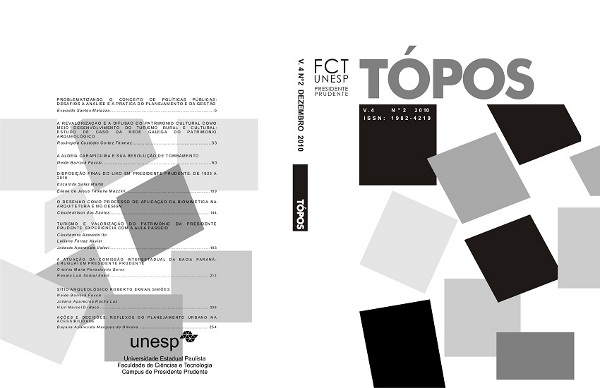"A REVALORIZAÇÃO E DIFUSÃO DO PATRIMÔNIO CULTURAL COMO MEIO DESENVOLVIMENTO DO TURISMO RURAL E CULTURAL: ESTUDO DE CASO DA REDE GALEGA DO PATRIMÔNIO ARQUEOLÓGICO”
Resumo
Este texto tem o propósito discutir o fator econômico do Turismo que foi o primeiro a despertar a atenção para esta atividade. Mas, atualmente, pensar dessa forma é limitar sua real abrangência e os benefícios que o Turismo traz em seus diferentes âmbitos além do econômico: cultural, social e ecológico. O patrimônio arqueológico é um recurso social, cultural e também econômico, para utilização tanto educativa como comercial; este último, a cargo do turismo, é imprescindível à valorização, ou seja, à sua estimativa para identificação social. Isto implica que, o processo de construção sociocultural do passado deve envolver diferentes atores sociais, com diferentes graus de responsabilidade, mas todos com um compromisso com a salvaguarda da propriedade cultural, simbólica e material como um aspecto significativo. Falar de bens culturais não é referir-se a um inventário de objetos atraentes, que pode mostrar os sítios arqueológicos, com uma arquitetura monumental: é, também, parte integrante de conhecimento e interpretação contextualizada do patrimônio cultural e inter-relacionados ao ambiente natural, onde os objetos e sítios arqueológicos são apenas parte de um todo, integrado a um sistema cultural que manifestam processos históricos únicos e não repetíveis no tempo e no espaço. A gestão adequada dos bens culturais é de fundamental importância para as comunidades que a possuem, já que servem para fortalecer a identidade e diversidade em um mundo globalizado, que tem como paradigma uma homogeneização do consumo indiscriminado.
Palavras-chave: turismo, patrimônio cultural / arqueológico, rede galega.
A REVALUATION AND DIFUSION OF CULTURAL HERITAGE AS MEANS OF DEVELEPMENT RURAL TURISM AND CULTURAL: CASE STUDY OF GALICIAN NETWORK OF ACHAEOLOGICAL HERITAGE
Abstract
This article aims to discuss the economic factor of Tourism which was the first to attract attention to this activity. But now, thinking this way is to limit its scope and the real benefits it brings in different areas beyond the economic, cultural, social and ecological. The archaeological heritage is a social resource, cultural and also economical to use them both educational and commercial, the latter in charge of tourism, it is essential for recovery, ie, its estimate for social identification. This implies that in the process of socio-cultural past must involve different social actors, with varying degrees of responsibility, but all with a commitment to the safeguarding of cultural property, symbolic and material as a significant aspect. Speaking of cultural property does not refer to an inventory of attractive objects, which can show the archaeological sites with monumental architecture, but an integral part of knowledge and contextualized interpretation of cultural heritage and inter-related and natural environment, where objects and archaeological sites are just part of a whole system integrated with a cultural historical processes which manifest unique and not repeatable in time and space. The proper management of cultural property is of fundamental importance to the communities that are already serving to strengthen the identity and diversity in a globalized world that has as a paradigm homogenization of indiscriminate consumption.
Keywords: tourism, cultural heritage / archaeological, galician network

